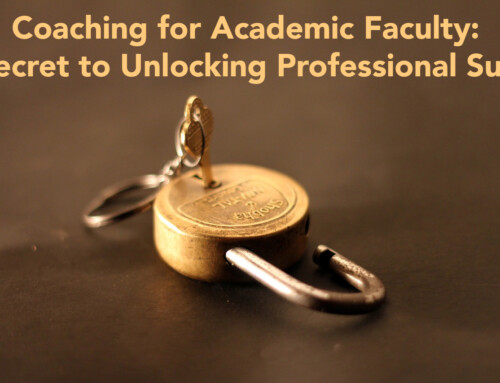 Asking effective questions is a valuable skill for any teacher. As a junior faculty member working to improve my teaching, I’m often in awe of my more experienced colleagues when I have the chance to watch them teach. At times, it’s quite easy to pick out the skills that they put into action but occasionally, their expertise is much more subtle.
Asking effective questions is a valuable skill for any teacher. As a junior faculty member working to improve my teaching, I’m often in awe of my more experienced colleagues when I have the chance to watch them teach. At times, it’s quite easy to pick out the skills that they put into action but occasionally, their expertise is much more subtle.
Effective questioning falls into this category.
It is fair to say that educators use questioning skills in every teaching encounter. Problem is, we often ask questions poorly. Too often, we ask factual, low level questions in an environment that isn’t conducive to learning. This is supported by other studies which found that only 17% of time spent speaking was in asking questions and 81% of questions asked were directed at low order thinking!
Effective questions
- Arouse learner curiosity
- Stimulate interest in the topic at hand
- Clarify concepts
- Reinforce key points
- Promote the learner to think at higher levels of cognition
Properly asked questions also allow the teacher to diagnose the learner. The answers provided can become a framework for teacher feedback at the end of the encounter.
So, I know it’s important, but how do I improve my questioning skills?

First and foremost. Take the time to evaluate the taxonomy of thinking skills. Probably the best known is Bloom’s. Bloom’s taxonomy divides thinking skills into 6 distinct levels (triangle diagram above):
- Knowledge: recall information and repeat it
- Comprehension: Explain topics, review items, and discuss issues
- Application: Apply previously learned knowledge and apply it to new situations
- Analysis: Break material into its component parts and use a systemic process to reach a logical conclusion
- Synthesis: Hypothesize, predict, and use available information to arrive at a generalization
- Evaluation: Use specific criteria to assess situations or to justify a previous response; defend positions, evaluate information, and appraise situations
Similar to Maslow’s Hierarchy of Needs, learners ascend the ladder from knowledge to evaluation as they gain expertise with the topic of study. Some example questions:
- Knowledge: What is the most common cause of meningitis in a child?
- Comprehension: What study would you order to rule out a pulmonary embolism in a patient with cancer?
- Application: A patient presents with DKA. Labs include a glucose of 550, sodium of 130, and potassium of 3.8. What type of fluid would you use to resuscitate this patient?
- Analysis: A 90 year old female a history of lung cancer and hypertension presents with tachypnea, hypoxia, and tachycardia. What are some possible causes of her illness?
- Synthesis: During an IJ central line placement, you inadvertently cannulate the carotid in a patient on warfarin. How would you proceed with the procedure?
- Evaluation: Given the presenting history of this patient, did you complete an appropriate workup?
In addition to asking questions within a taxonomy of cognitive skills, questions can fall into a spectrum of “types” which further help the student to develop critical thinking skills.
- Factual Questions: Recall information
- Investigative Questions: Comprehend content, apply information, analyze situations, or synthesize information
- Hypothetical Questions: Synthesize information to consider other hypothetical possibilities. This is the classic “What if” question.
- Evaluative Questions: Assess or appraise a situation, judge, or defend a position
Questions can also be categorized as convergent and divergent. Convergent questions guide learners towards closure of a discussion. Divergent questions focus on higher order thinking as they require learners to consider alternatives, justify, and defend. This type of question often involves departing from the original case.
Pitfalls in Questioning
- Beware of body language. A disgusted look, frown, or negative verbal response will shut down discussion quickly.
- Avoid Sarcasm. How many times have you heard, “Don’t they teach you ______ in medical school anymore?”
- Avoid yes-no and trick questions. Students can guess an answer without really understanding why it is right or wrong while trick questions frustrate learners.
- Beware of cueing. Cueing gives away the answer and prevents the development of critical thinking.
- Address groups not individuals. When picking a learner by name, the rest of the group tunes out. By asking the group, everyone thinks about the question and has an answer by the time the facilitator picks a student to answer.
- Don’t forget the non-volunteers. Make sure to involve all learners, not just the overly enthusiastic ones.
- Adapt questions to the needs of the learners. Make sure to evaluate the answers. Questions need to be challenging to learners but not so far up the taxonomy that they fail to understand the reasons for the correct answer. Using the students responses, you need to be able to ask more or less difficult questions.
- Wait long enough for an answer. The average wait time between asking a question and answering it has been found to be as short as 1 second!!! By waiting 3-5 seconds, the students will gain increased analytics and problem solving skills. One study cited in the paper found that students will increase the length of their answers, increase the number of unsolicited responses that are correct, and increase questions from the students! It only takes 2 more seconds to reap all of these valuable benefits!
My Take
When I first read this article I was blown away by the breadth and depth of questioning skills but with a little practice, it gets pretty easy. I like to start with low level questions and move up the ladder. Its easy to encourage higher level thinking by asking “why” and “what if” questions as a followup to your initial question. What other creative tricks are people using to ask effective questions?
Reference
Sachdeva AK (1996). Use of effective questioning to enhance the cognitive abilities of students. Journal of cancer education : the official journal of the American Association for Cancer Education, 11 (1), 17-24 PMID: 8777151




